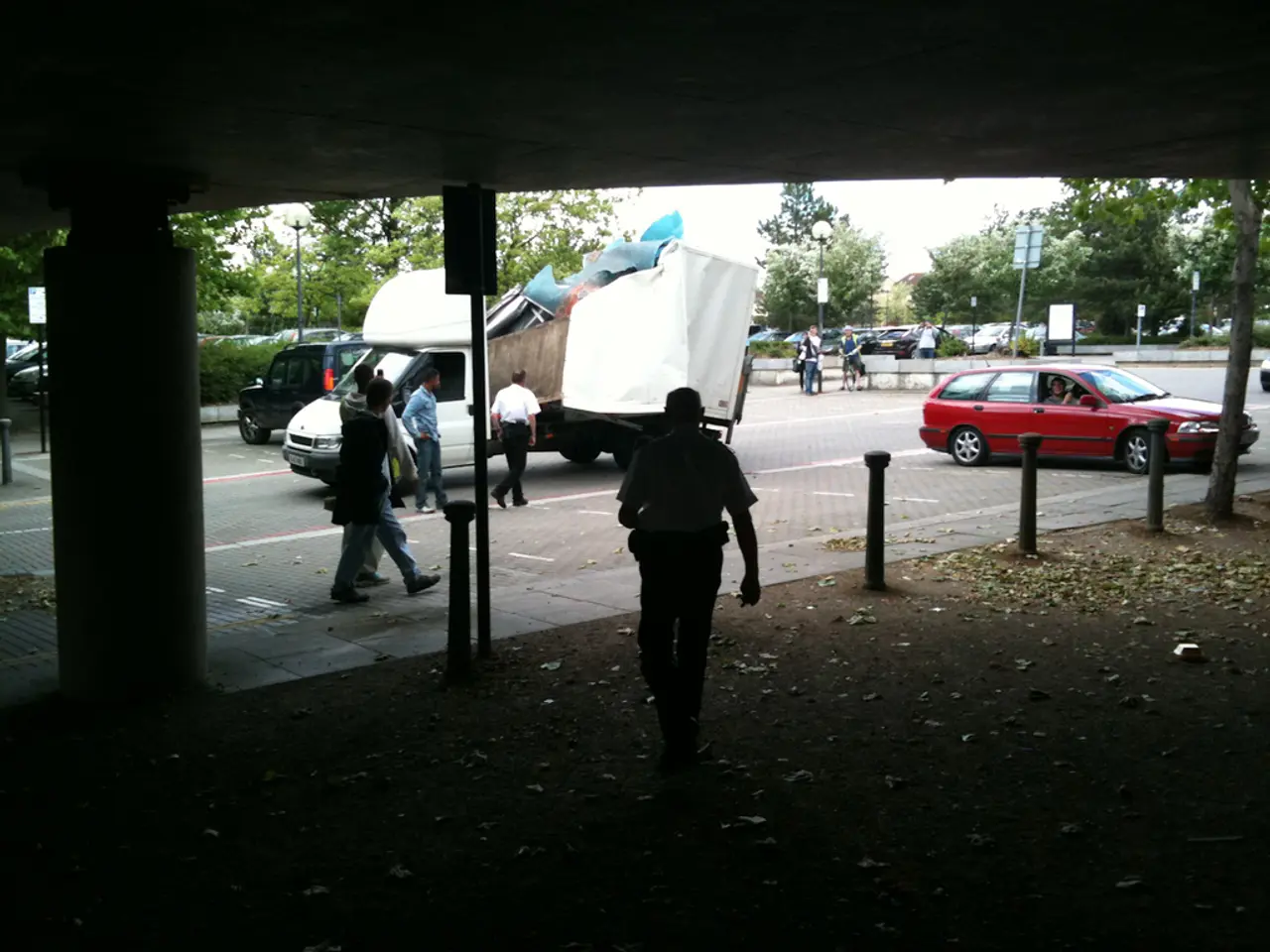Taxi drivers fear they are edging towards financial instability due to increased taxes
The taxi industry in Russia is currently navigating challenging times, with increased taxes and localization laws adding to the struggle.
Recently, President Vladimir Putin signed a law mandating the localization of vehicles used as taxis, effective from March 1, 2026[1]. This law requires taxis to be produced or assembled within Russia, limiting the ability of taxi companies to procure cheaper foreign vehicles or components, which may lead to higher capital and maintenance costs.
However, the government is promoting domestically produced electric vehicles such as the "Atom" electric car, which complies fully with these localization laws[2]. These vehicles offer functional designs tailored for taxis, including configurations that maximize passenger and luggage space, and provide a modern, eco-friendly alternative to imported cars. The production of such vehicles could moderate cost increases for taxi companies over time, especially as mass production ramps up in late 2025.
Ruslan Satretdinov, head of the "Rythm" taxi park, and Dmitry Ivanter, general director of "VTB Leasing", have both stated that the increased taxes are further affecting profitability[1]. Omar Bagamaev, CEO of "Avenue Group", added that taxi parks with more than 50 vehicles and an annual turnover of over 60 million rubles are particularly affected by the tax burden[1].
Valerie Korneev, chairman of the "Digital World" union, predicted that if the taxi localization law is implemented, prices for transportation may increase by up to 40%[1]. However, under an optimistic scenario, the market growth rate may reach up to 15% per year[1].
According to "VTB Leasing", the number of taxis in Russia is expected to increase by 75% from the end of 2019 to 2025, reaching 700,000 units[1]. Russian carriers have requested the Ministry of Industry and Trade to create a special adapted vehicle for taxi work due to the upcoming enforcement of the law[1].
In summary, while the new localization law initially imposes higher costs on taxi companies, the availability of compliant domestic models may help to balance these costs in the medium term. The increased expenses could translate into higher fares for passengers unless offset by improved operational efficiencies or subsidies. No explicit data on exact profitability impacts or fare hikes is yet available, as the law is upcoming and detailed economic analyses have not been published[1][2].
Thus, the law aims at boosting domestic vehicle production and technological sovereignty but will likely make taxi operations more expensive at least initially, influencing profitability and the cost of transportation upward.
[1] Russian Localization Law for Taxis [2] Atom Electric Car for Taxis
- The taxi industry in Russia, with the upcoming localization law for vehicles used as taxis, is transitioning towards the use of domestically produced cars like the "Atom" electric car.
- The localization law mandates that taxis must be produced or assembled within Russia, potentially increasing capital and maintenance costs for taxi companies.
- Despite the initial cost implications, the production of domestically produced electric vehicles could moderate these cost increases over time, especially as mass production ramps up in late 2025.




